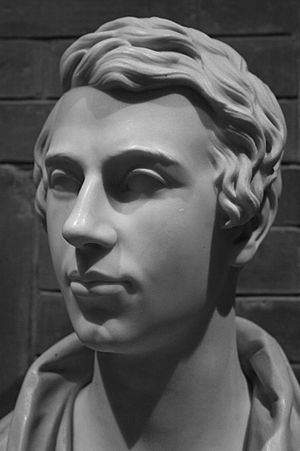Francis Cunningham (Indian Army officer) facts for kids

Francis Cunningham (born 1820 – died 3 December 1875) was an important officer in the Madras Army in India. He also worked for the Mysore Commission, helping Mark Cubbon, who was a chief leader in Bangalore. Besides his army work, Francis was also a literary editor, meaning he prepared and published books. He is known for publishing a new edition of the famous writer Ben Jonson's works in 1871. A road in Bangalore, India, called Cunningham Road, is named after him.
Contents
Life and Work in India
Francis Cunningham came from a very talented family. His father, Allan Cunningham, was a poet. His older brothers also became well-known: Joseph Davey wrote a history book about the Sikhs, and Sir Alexander Cunningham started the Archaeological Survey of India, which studies old buildings and artifacts. Many of his brothers also spent much of their lives working in India. His younger brother, Peter Cunningham, became a literary editor too.
Joining the Army
Francis and his brothers got their start in the army thanks to a friend of their father, Sir Walter Scott. Scott helped them get into the Military Seminary of the British East India Company at Addiscombe. After his training, Francis became an Ensign in the 23rd Madras Native Infantry in 1838.
War and Bangalore
Francis joined the Shah's Sappers, a group of military engineers, to help in a war in Afghanistan. This was during the First Anglo-Afghan War. He showed great skill as a Field Engineer, especially with Robert Sale at Jalalabad. After the war ended in 1850, he was sent to the Mysore Commission in Bangalore. He stayed in Bangalore for the rest of his time in India. He was known for being very welcoming and had a huge private library.
As Secretary to the Mysore Commission, Francis worked closely with Sir Mark Cubbon, the Chief Commissioner. He played a big part in developing Bangalore. This included helping with the Horticultural Gardens at Lalbagh and building projects. He even built a house for Sir Mark Cubbon in the nearby Nandi Hills.
Supporting the Maharaja
When Sir Mark Cubbon retired in 1861, Francis Cunningham stayed in Bangalore. His health started to decline, but he continued to work. He strongly supported the deposed Maharaja Krishna Rajendra Wodeyar III. Francis argued that the Maharaja should be allowed to adopt an heir and get his kingdom back.
Francis was a very skilled writer. His strong arguments caused many problems for the next Chief Commissioner, Lewin Bentham Bowring. Bowring noted that Cunningham's official letters were very well-written but often contained humor or sarcasm that people didn't like. Even after leaving the commission, Francis worked for the Maharaja, writing letters about his claims. This caused some trouble for Bowring.
Return to England and Literary Work
Francis Cunningham eventually returned to England. He lived in Kensington, London. His house was full of books and rare pictures. These included old pencil drawings of famous writers like Charles Lamb and William Wordsworth, which later went to the British Library.
He continued his work as a literary editor. In 1870, he edited the works of Kit Marlowe. In 1872, he edited the works of Philip Massinger and Ben Jonson. His obituary, a notice of his death, praised him for updating William Gifford's 1816 text of Ben Jonson. However, later editors found some mistakes in Cunningham's work. They said he simply reprinted old errors and didn't read the original writings carefully enough. Still, he was praised for including William Drummond's conversations with Ben Jonson. Towards the end of his life, he was working on a new edition of his brother Peter Cunningham's Handbook to London. Francis Cunningham died on 3 December 1875.
A marble statue of Francis Cunningham, made by the sculptor Francis Leggatt Chantrey, can be seen in the Scottish National Portrait Gallery. The Cunningham Road in Bangalore is named after him. Since many of the Cunningham siblings played important roles in Indian history, this road can be seen as a tribute to their whole family.
 | Dorothy Vaughan |
 | Charles Henry Turner |
 | Hildrus Poindexter |
 | Henry Cecil McBay |

